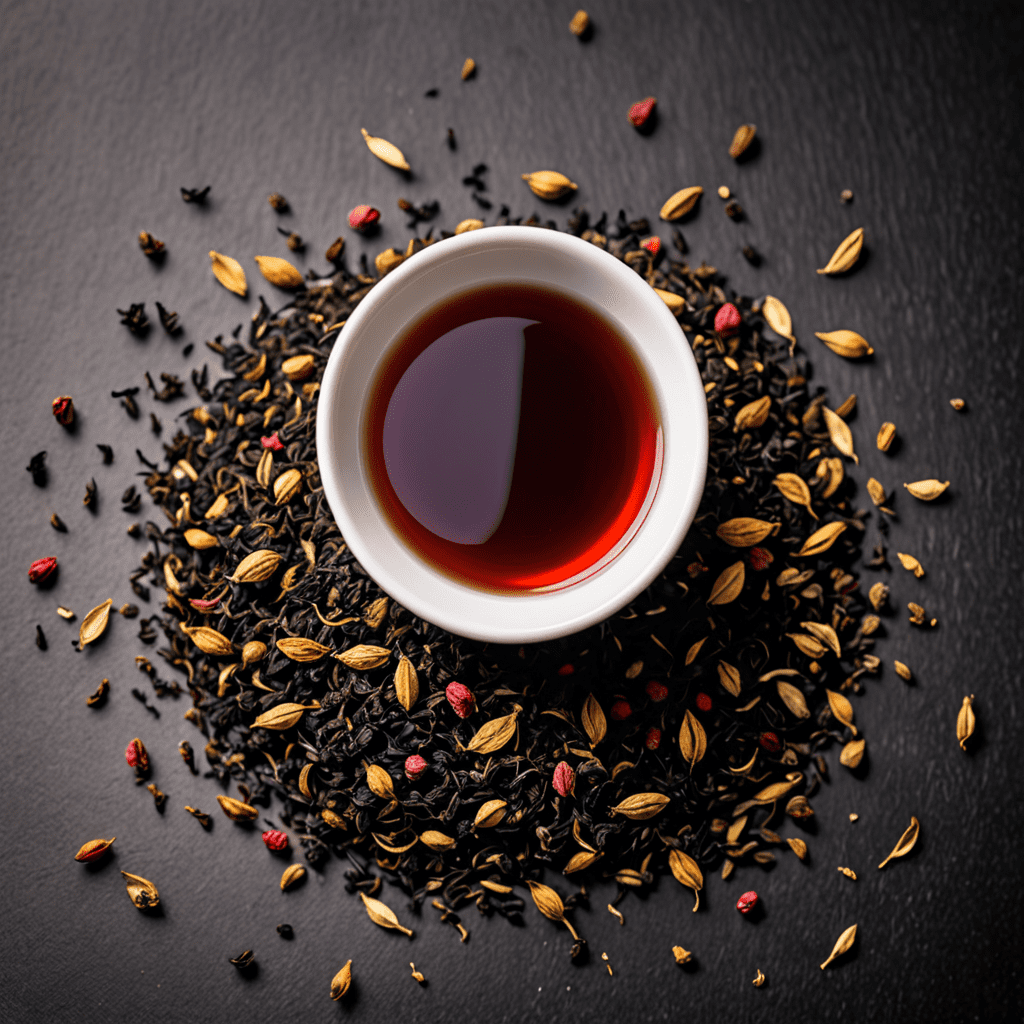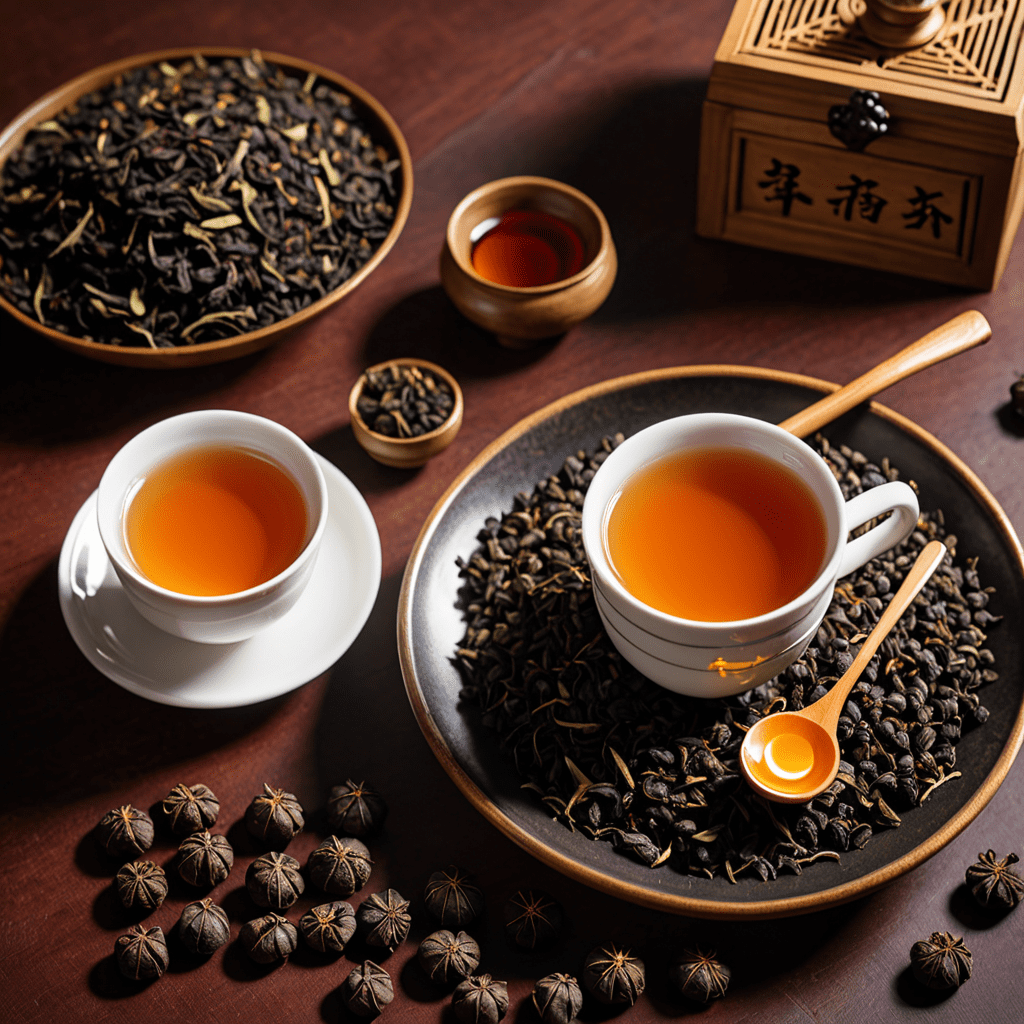
The Global Appeal of Assam Tea
1. History and Origins of Assam Tea
Assam tea, renowned globally for its robust flavor and malty notes, holds a rich and intriguing history deeply entwined with the Indian state of Assam. Archaeological evidence suggests that tea cultivation in Assam dates back to the early 19th century, with the first commercial tea plantations established in the 1850s. Indigenous to the region, the large-leaved Assamica variety of tea plant thrives in the unique climatic conditions of Assam, contributing to the tea's distinctive characteristics.
2. Unique Characteristics of Assam Tea
Assam tea is celebrated for its full-bodied flavor, characterized by a malty sweetness and a hint of briskness. The tea leaves, larger than those of other varieties, impart a rich golden-brown hue to the brewed tea. Assam tea is known for its higher caffeine content, resulting in a stimulating and invigorating effect. Additionally, its high antioxidant content contributes to its health-promoting properties.
3. Flavor Profile and Health Benefits
Assam tea offers a complex flavor profile, ranging from earthy and malty to floral and fruity notes. The tea's astringency is balanced by its natural sweetness, creating a harmonious and satisfying drinking experience. Beyond its taste, Assam tea is recognized for its health benefits, including improved digestion, reduced stress, and boosted immunity.
4. Geographical Significance of Assam for Tea Cultivation
The state of Assam, located in northeastern India, plays a pivotal role in the global tea industry. Assam's unique geographical features, including its fertile soil, abundant rainfall, and high humidity, provide an ideal environment for tea cultivation. The Brahmaputra River, flowing through the region, further contributes to the favorable conditions for tea growth.
5. Sustainability and Ethical Aspects of Assam Tea
The Assam tea industry emphasizes sustainable and ethical practices to ensure the long-term viability of the industry and the well-being of tea workers. Measures include organic farming techniques, fair trade certifications, and worker welfare initiatives. These practices not only protect the environment but also promote social and economic development in the region.
6. Global Export and Consumption Trends
Assam tea has gained worldwide recognition, with exports reaching over 50 countries. Major importers include the United Kingdom, Germany, the United States, and Russia. The tea's unique flavor and aroma have made it a favorite among tea enthusiasts globally, contributing to its growing popularity.
7. Marketing and Branding of Assam Tea
The Assam tea industry has invested in strategic marketing and branding initiatives to differentiate Assam tea from other varieties. The use of geographical indications (GI) and certifications, such as the Assam Orthodox Tea GI, helps protect the authenticity and quality of the tea.
8. Cultural and Culinary Legacy of Assam Tea
Assam tea is deeply ingrained in the cultural and culinary heritage of Assam. It is an integral part of Assamese cuisine, accompanying meals and social gatherings. The tea's robust flavor pairs well with traditional Assamese dishes, enhancing their taste and adding a comforting touch.
9. Economic Impact and Job Creation
The Assam tea industry plays a significant role in the state's economy, providing employment to over 1 million people. The cultivation, processing, and export of tea generate substantial revenue, contributing to the overall development of the region.
10. Future Prospects and Challenges for Assam Tea Industry
The future of the Assam tea industry is shaped by both opportunities and challenges. The growing global demand for specialty teas presents opportunities for further expansion and diversification. However, climate change and environmental sustainability pose challenges that require innovative solutions to ensure the industry's long-term viability.
Frequently Asked Questions
Q: What is the difference between Assam tea and other black teas?
A: Assam tea is known for its full-bodied flavor, malty sweetness, and higher caffeine content, distinguishing it from other black teas.
Q: How is Assam tea best enjoyed?
A: Assam tea can be enjoyed black or with milk and sugar. It pairs exceptionally well with breakfast dishes and is a perfect accompaniment to spicy foods.
Q: What are the health benefits of Assam tea?
A: Assam tea is a rich source of antioxidants, contributing to improved digestion, reduced stress, and boosted immunity.
Q: How can I ensure I am buying authentic Assam tea?
A: Look for certifications such as the Assam Orthodox Tea GI, which guarantees the tea's authenticity and quality.


